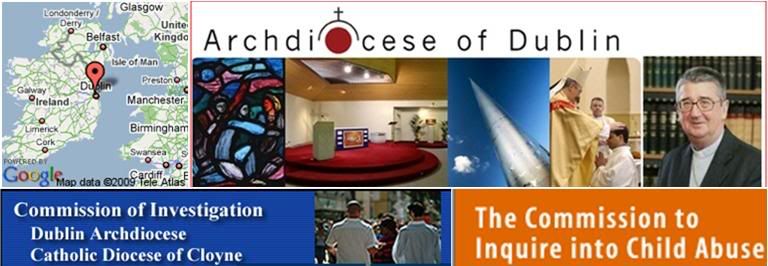
 It is not surprising by now that the media, particularly those in the UK, take every occasion to denounce the Catholic Church for the sexual abuses against minors committed by some priests, and the Pope and the Vatican for allegedly having tried to cover up these abuses for decades - deliberately distorting Vatican documents and dates to allege the cover-up, trusting that few readers will bother to go check out the documents and dates they cite for veracity.
It is not surprising by now that the media, particularly those in the UK, take every occasion to denounce the Catholic Church for the sexual abuses against minors committed by some priests, and the Pope and the Vatican for allegedly having tried to cover up these abuses for decades - deliberately distorting Vatican documents and dates to allege the cover-up, trusting that few readers will bother to go check out the documents and dates they cite for veracity.
Thus, even if the contents of the Murphy Report have been generally known for months, the release of the full report earlier this week was treated as though it were a new scandal altogether.
The Vatican press director has also had to make the statement reported below to distinguish between local Churches and the universal Church in terms of direct supervision and responsibility for the conduct of priests serving in the local Churches. But notice the slant in the headline and the report itself.
Holy See keeps its distance
from Irish abuse problem
by PADDY AGNEW in Rome

Nov. 27, 2009
NOT FOR the first time, the Holy See yesterday formally attempted to keep its distance from an Irish clerical sex abuse problem.
Responding to the publication of the Dublin diocesan report, Vatican senior spokesman Fr Federico Lombardi told
The Irish Times that matters such as these are handled by the local Church rather than by the Holy See.
“With regard to matters like this, the line is very clear. We leave all comment to the local church involved . . .”
In a section of the report, “Documents Held by Rome”, the commission appears to imply that full co-operation was not forthcoming from the Holy See. In particular, the commission reports that requests for information made to the Vatican’s Congregation for the Doctrine of the Faith (CDF) and to the Papal Nuncio in Dublin went unanswered.
The report states that rather than contacting the commission, the CDF contacted the Department of Foreign Affairs, saying that the commission had not gone through “appropriate diplomatic channels”.
Fr Lombardi argued such an explanation was perfectly normal since routine diplomatic practice requires that any outside requests made to the governance of the Holy See, in this case, the CDF, would pass through diplomatic channels – in this case, the Department of Foreign Affairs in Dublin and the Irish Embassy to the Holy See in Rome. “It’s obvious, if you are looking for official documents from the Vatican then you have to go through the normal diplomatic channels,” he said.
Vatican observers argue the same “diplomatic” reasoning would apply to the lack of a reply from the Papal Nuncio in Dublin. He, too, as the Vatican’s ambassador in Ireland, cannot respond directly to a request from an albeit independent Irish body.
Vatican analysts point out that while the Catholic Church is very centralised when it comes to issues like Church appointments, it is contrastingly decentralised when it comes to day-to-day, local church financial administration.
Put simply, this means that bishops are appointed in Rome but damages are paid in Dublin.
For the nuncio or indeed the CDF to respond directly to the commission might have implied acceptance of a certain Vatican responsibility or indeed culpability with regard to Irish affairs.
As for the overall findings, Fr Lombardi was reluctant to add any further comment: “In all cases like this, it is not appropriate for Rome to comment, rather that is for the local bishop. In the case of Dublin, we have an excellent archbishop and he knows what has to be said.”
I think Fr. Lombardi missed the occasion remind the reporter of Pope Benedict's address to the Irish bishops back in October 2006 in which he asked the local bishops to find out the truth, attend to the victims and take steps against recurrence of the problem.
He got caught up in explaining a technicality - and whenever someone resorts to a technicality, no matter how valid it is, the impression left is always negative.
Citing Benedict's words to th Irish bishops would at least have introduced something positive. Though there is no guarantee, of course, that the reporter would have used it.
[Modificato da TERESA BENEDETTA 28/11/2009 23:46]